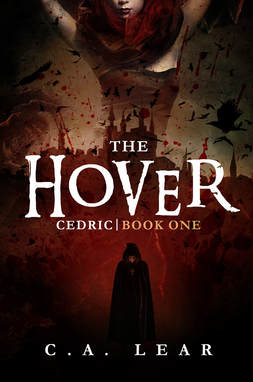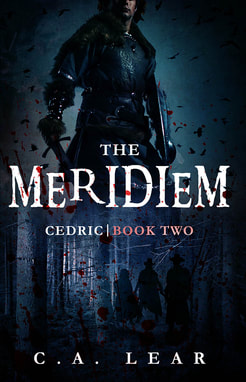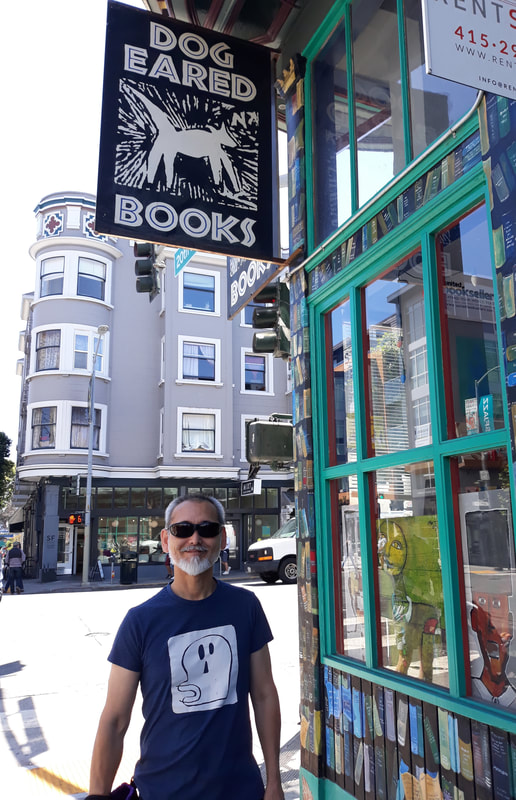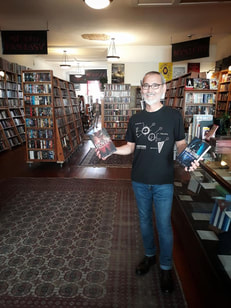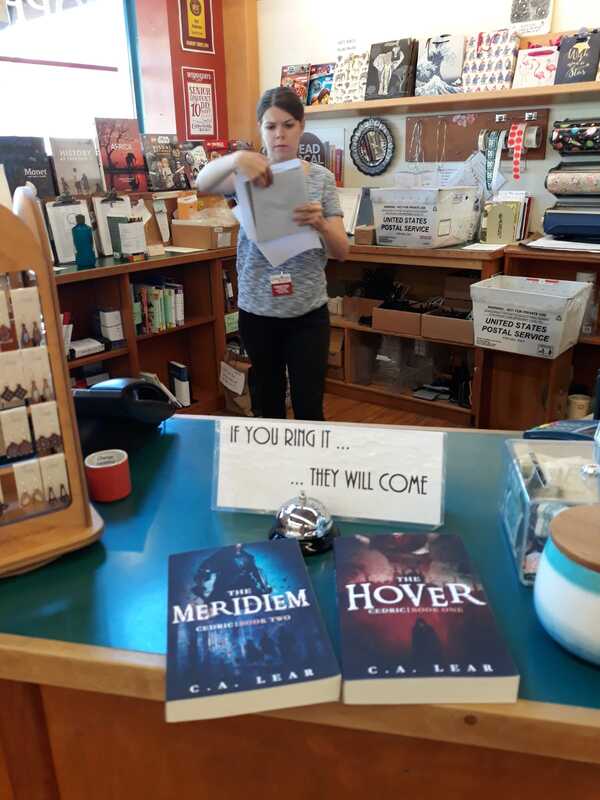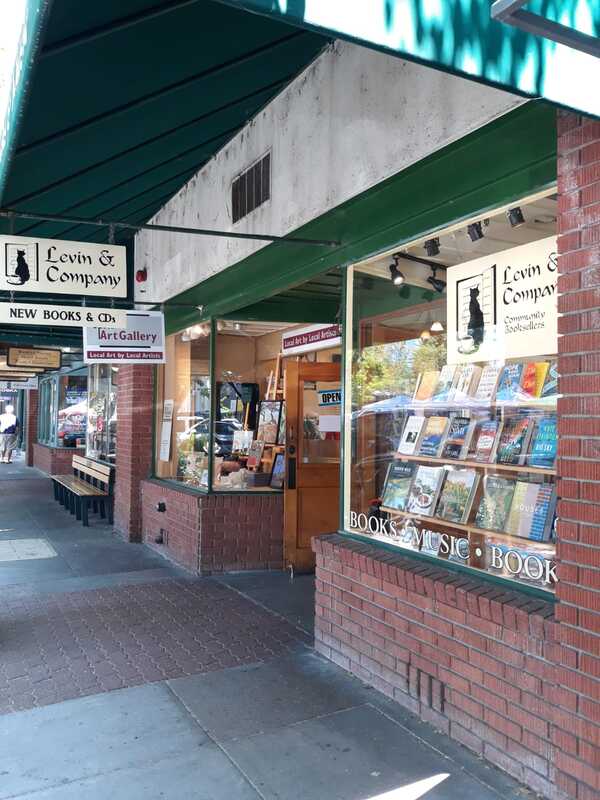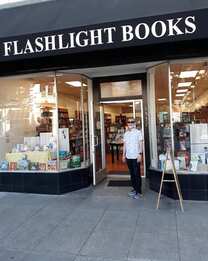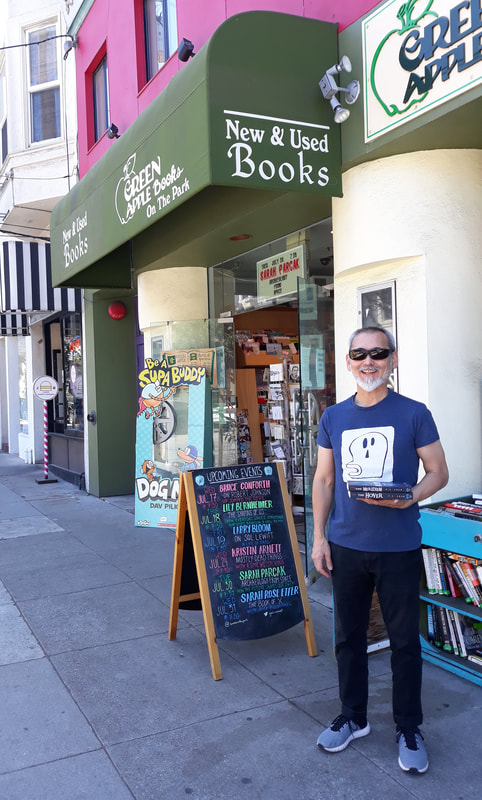Welcome to my website!
If fantasy, horror, and upmarket fiction is your thing, check these out:
The Hover, Cedric Book 1
The Meridiem, Cedric Book 2
If fantasy, horror, and upmarket fiction is your thing, check these out:
The Hover, Cedric Book 1
The Meridiem, Cedric Book 2
Available at popular e-bookstores such as Barnes&Noble, Apple, Playster, Amazon, Scribd, 24symbols...
Hardcopies available at these fine bookstores:
Flashlight Books
1537 N Main Street
Walnut Creek, CA
https://www.flashlightbooks.com
Pegasus Books Downtown Berkeley
2349 Shattuck Avenue
Berkeley, CA
https://www.pegasusbookstore.com
Copperfield's Books (Sebastopol)
138 North Main Street
Sebastopol, CA
https://www.copperfieldsbooks.com/sebastopol
Borderlands Books
866 Valencia St.
San Francisco, CA
https://www.borderlands-books.com
Dog Eared Books
900 Valencia St.
San Francisco, CA
http://www.dogearedbooks.com/
Green Apple Books on the Park
1231 9th Avenue at Lincoln
San Francisco, CA
https://www.greenapplebooks.com/
Levin & Company Community Booksellers
306 Center Street
Healdsburg, CA
https://www.levinbooks.com
If you would like to see my books in your local bookstore, give me a shout!
1537 N Main Street
Walnut Creek, CA
https://www.flashlightbooks.com
Pegasus Books Downtown Berkeley
2349 Shattuck Avenue
Berkeley, CA
https://www.pegasusbookstore.com
Copperfield's Books (Sebastopol)
138 North Main Street
Sebastopol, CA
https://www.copperfieldsbooks.com/sebastopol
Borderlands Books
866 Valencia St.
San Francisco, CA
https://www.borderlands-books.com
Dog Eared Books
900 Valencia St.
San Francisco, CA
http://www.dogearedbooks.com/
Green Apple Books on the Park
1231 9th Avenue at Lincoln
San Francisco, CA
https://www.greenapplebooks.com/
Levin & Company Community Booksellers
306 Center Street
Healdsburg, CA
https://www.levinbooks.com
If you would like to see my books in your local bookstore, give me a shout!
_____________________________________________________________________________________________________________________

FEAR OF FAILING
by, C. A. Lear
The fear of failing shouldn't overwhelm the fear of never having tried, but sometimes it does. Why? At the instinctual level, fear helps us survive and motivates us to be practical. Fear is also an evolved emotion, molded by individual experiences. While there are many benefits to fear, it can also hinder us. It causes hesitation, procrastination, and inflexibility toward change and diversity. As a writer of fiction, my greatest fear is publishing—specifically, the what-if-everything-goes-wrong scenarios. What if I don't sell any books? What if I get bad reviews? What if I get no reviews? Success is obviously the least of my worries, though even modest success would stoke my fears as well. Yet no amount of fear will diminish my curiosity about how marketable my work really is.
Finding balance between being hyper-risk averse and cat-curious can be challenging. How do publishers manage this balance? I've learned that successful publishers keep a finger on the pulse of market trends. They constantly monitor what's in, what's out, and what's coming back into popular demand. In The New York Times Sunday Review, Stephen Marche stated that "Three-hundred-thousand books are published in the United States every year. A few hundred, at most, could be called financial or creative successes." A 99% failure rate is indeed something to fear. No wonder literary agents and publishers are so selective. They can predict annual losses like a grocery store anticipates average spoilage. Why would anyone gamble on such dismal odds?
Let's consider the film industry, another risky business. In Forbes, Schuyler Moore contends that most films lose money—about 80%. Yet, movie producers continue making films, and publishers continue releasing books. Why risk losses and even bankruptcy? Aside from fame and fortune, what else motivates the decision to produce a film or publish a novel?
Experienced publishers likely rely on personal preferences, gut instincts, lessons learned, and basic business principles to decide yes or no. Having no publishing experience or means to hire someone who did, I decided to answer these questions myself: 1) Is my story marketable? and 2) How can I determine its marketability without publishing it? After some contemplation, I developed a simple approach.
I created a survey for my new (at the time) horror novel THE HOVER. My assistant and I provided a sample chapter and survey to random people in coffee shops. After they read the chapter, we asked them to complete the survey. It collected quantifiable data including the reader's gender, age, genre preferences, and like/dislike ratings of the chapter. From a sample of 30 participants, I quantified, graphed, and analyzed the data. The results revealed a well-liked chapter and potentially marketable novel. Yet even after this validation, I remained unwilling to publish!
One day, my wife suggested I publish THE HOVER. I couldn't believe my ears and initially resisted because literary agents weren't interested in vampire stories at that time—zombies were trending. She reminded me that trends come and go, and I didn't need a literary agent to self-publish. I wasn't keen on self-publishing because much of the indie content I'd read wasn't very good. She countered that much of the traditionally published material she'd read wasn't very good either. Hmm...sigh
In the end, my survey results and my wife's encouragement overcame my fear of self-publishing THE HOVER. What are my thoughts on self-publishing now? Why not ask me directly? While you're at it, please buy THE HOVER, Cedric Book 1. Post your review on Goodreads and/or the e-store you purchased from. And don't forget the action-packed sequel: THE MERIDIEM, Cedric Book 2.
NOTE: Statistical forecasting even with positive results cannot guarantee success.
C. A. Lear
by, C. A. Lear
The fear of failing shouldn't overwhelm the fear of never having tried, but sometimes it does. Why? At the instinctual level, fear helps us survive and motivates us to be practical. Fear is also an evolved emotion, molded by individual experiences. While there are many benefits to fear, it can also hinder us. It causes hesitation, procrastination, and inflexibility toward change and diversity. As a writer of fiction, my greatest fear is publishing—specifically, the what-if-everything-goes-wrong scenarios. What if I don't sell any books? What if I get bad reviews? What if I get no reviews? Success is obviously the least of my worries, though even modest success would stoke my fears as well. Yet no amount of fear will diminish my curiosity about how marketable my work really is.
Finding balance between being hyper-risk averse and cat-curious can be challenging. How do publishers manage this balance? I've learned that successful publishers keep a finger on the pulse of market trends. They constantly monitor what's in, what's out, and what's coming back into popular demand. In The New York Times Sunday Review, Stephen Marche stated that "Three-hundred-thousand books are published in the United States every year. A few hundred, at most, could be called financial or creative successes." A 99% failure rate is indeed something to fear. No wonder literary agents and publishers are so selective. They can predict annual losses like a grocery store anticipates average spoilage. Why would anyone gamble on such dismal odds?
Let's consider the film industry, another risky business. In Forbes, Schuyler Moore contends that most films lose money—about 80%. Yet, movie producers continue making films, and publishers continue releasing books. Why risk losses and even bankruptcy? Aside from fame and fortune, what else motivates the decision to produce a film or publish a novel?
Experienced publishers likely rely on personal preferences, gut instincts, lessons learned, and basic business principles to decide yes or no. Having no publishing experience or means to hire someone who did, I decided to answer these questions myself: 1) Is my story marketable? and 2) How can I determine its marketability without publishing it? After some contemplation, I developed a simple approach.
I created a survey for my new (at the time) horror novel THE HOVER. My assistant and I provided a sample chapter and survey to random people in coffee shops. After they read the chapter, we asked them to complete the survey. It collected quantifiable data including the reader's gender, age, genre preferences, and like/dislike ratings of the chapter. From a sample of 30 participants, I quantified, graphed, and analyzed the data. The results revealed a well-liked chapter and potentially marketable novel. Yet even after this validation, I remained unwilling to publish!
One day, my wife suggested I publish THE HOVER. I couldn't believe my ears and initially resisted because literary agents weren't interested in vampire stories at that time—zombies were trending. She reminded me that trends come and go, and I didn't need a literary agent to self-publish. I wasn't keen on self-publishing because much of the indie content I'd read wasn't very good. She countered that much of the traditionally published material she'd read wasn't very good either. Hmm...sigh
In the end, my survey results and my wife's encouragement overcame my fear of self-publishing THE HOVER. What are my thoughts on self-publishing now? Why not ask me directly? While you're at it, please buy THE HOVER, Cedric Book 1. Post your review on Goodreads and/or the e-store you purchased from. And don't forget the action-packed sequel: THE MERIDIEM, Cedric Book 2.
NOTE: Statistical forecasting even with positive results cannot guarantee success.
C. A. Lear
